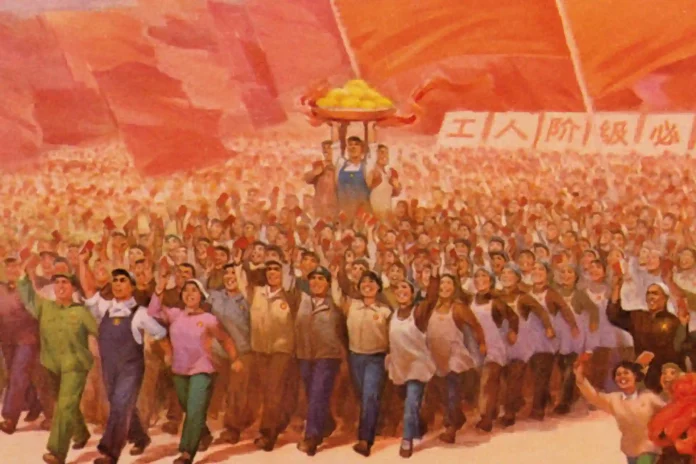China’s Cultural Revolution was a period of great social and political change. Despite the chaos, a strange event occurred involving a gift from Pakistan and a unique expression of respect. Let’s delve deep into the history of Pakistani mangoes in China: the story of Chairman Mao’s Golden Mango Cult.
The Beginning of Mango Cult
In August 1968, Pakistan’s Foreign Minister, Mian Arshad Hussain, gave Chairman Mao Zedong a crate of Sindhri mangoes, a treasured delicacy in his nation. This reasonably straightforward diplomatic gesture took an unexpected turn. Instead of eating the unfamiliar fruit, Mao decided to give the entire box to a worker-peasant propaganda team stationed at Tsinghua University.
The act of giving rather than consuming this treasure became a powerful symbol for Chairman Mao. It was interpreted as a symbol of Mao’s sympathy for the working class and rejection of the student-led Red Guards, who had previously dominated the Cultural Revolution. Mangoes, an uncommon sight in China, were turned from fruits into beloved things.
What Happened with the Mangoes in China?
The workers, overwhelmed by the value of the “sweetest” present, refused to eat the mangoes. Instead, they set out on a mission to preserve them. Some were delicately sealed in wax, while others were dipped in formaldehyde, a dramatic procedure that reflected the vibrant spirit of the period.
The “Golden Mangoes” became a powerful symbol of Mao’s leadership and his emphasis on the working class. Images of mangoes began to appear on everyday goods, adding to their symbolic meaning. The episode highlights how extreme people went to show allegiance during the Cultural Revolution in China.
Truth Behind Golden Mango Propaganda
This apparently simple move generated an outburst and became a powerful symbol of Mao’s support for the working class. But wasn’t it all a bit too good to be true?
The timing of the mango delivery is indeed surprising. As student radicals lost power, the working class rose to dominance. Mao handing away these priceless fruits could have been a beautifully planned action, a delicious symbol for the shifting political situation. The workers’ devotion to the mangoes, which they refuse to eat and instead use extraordinary preservation procedures, adds to the mystery. Was it genuine awe or just a subtle nudge from the propaganda machine to boost the symbolism?
Read More! Does Tomato Juice Kill Salmonella Typhi Bacteria?
The story of Chairman Mao Mango cult shows how seemingly ordinary objects can become entangled in complex political narratives. It’s a quirky yet thought-provoking glimpse into a period of Chinese history marked by both unrest and strange symbolism.



